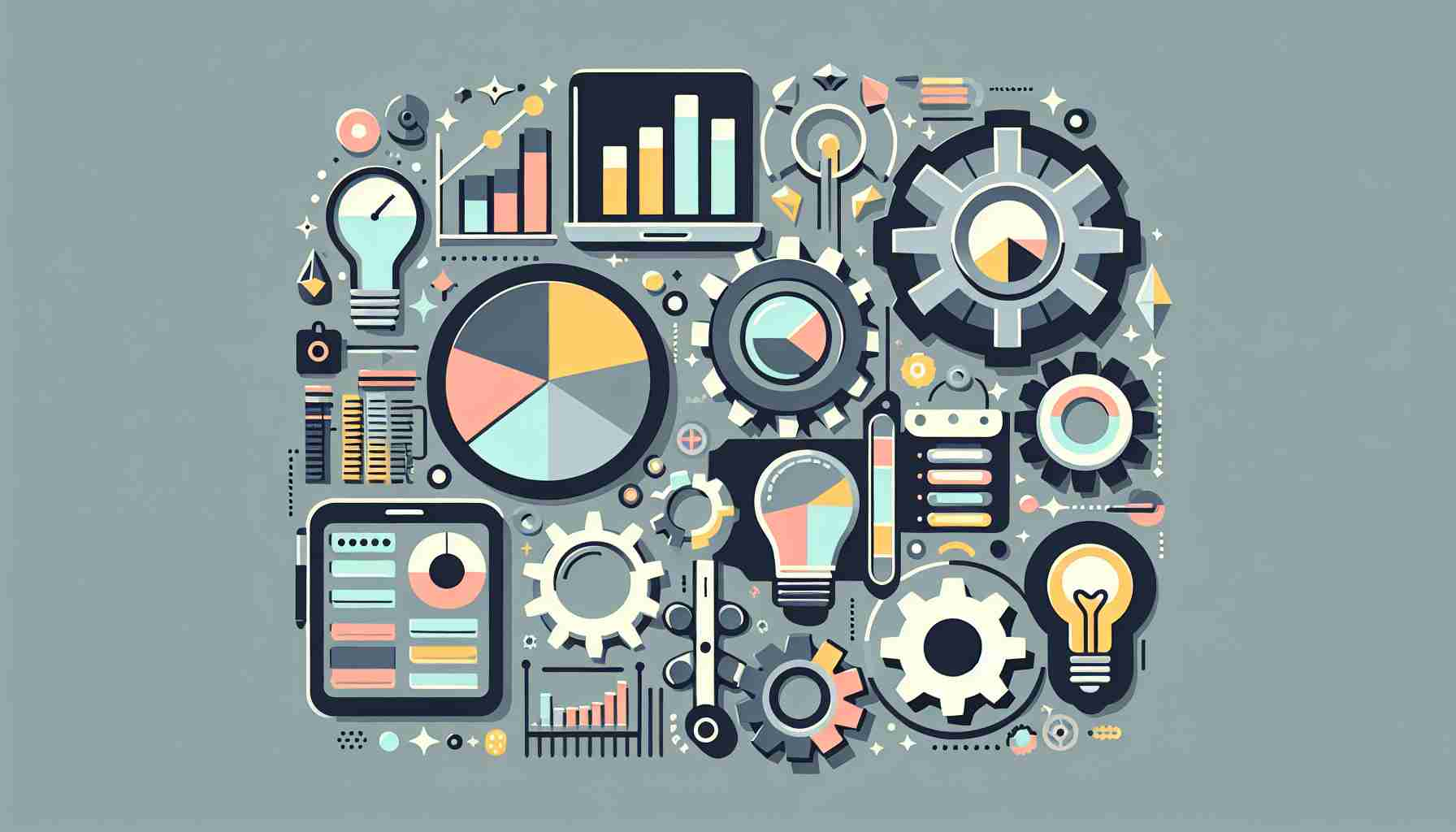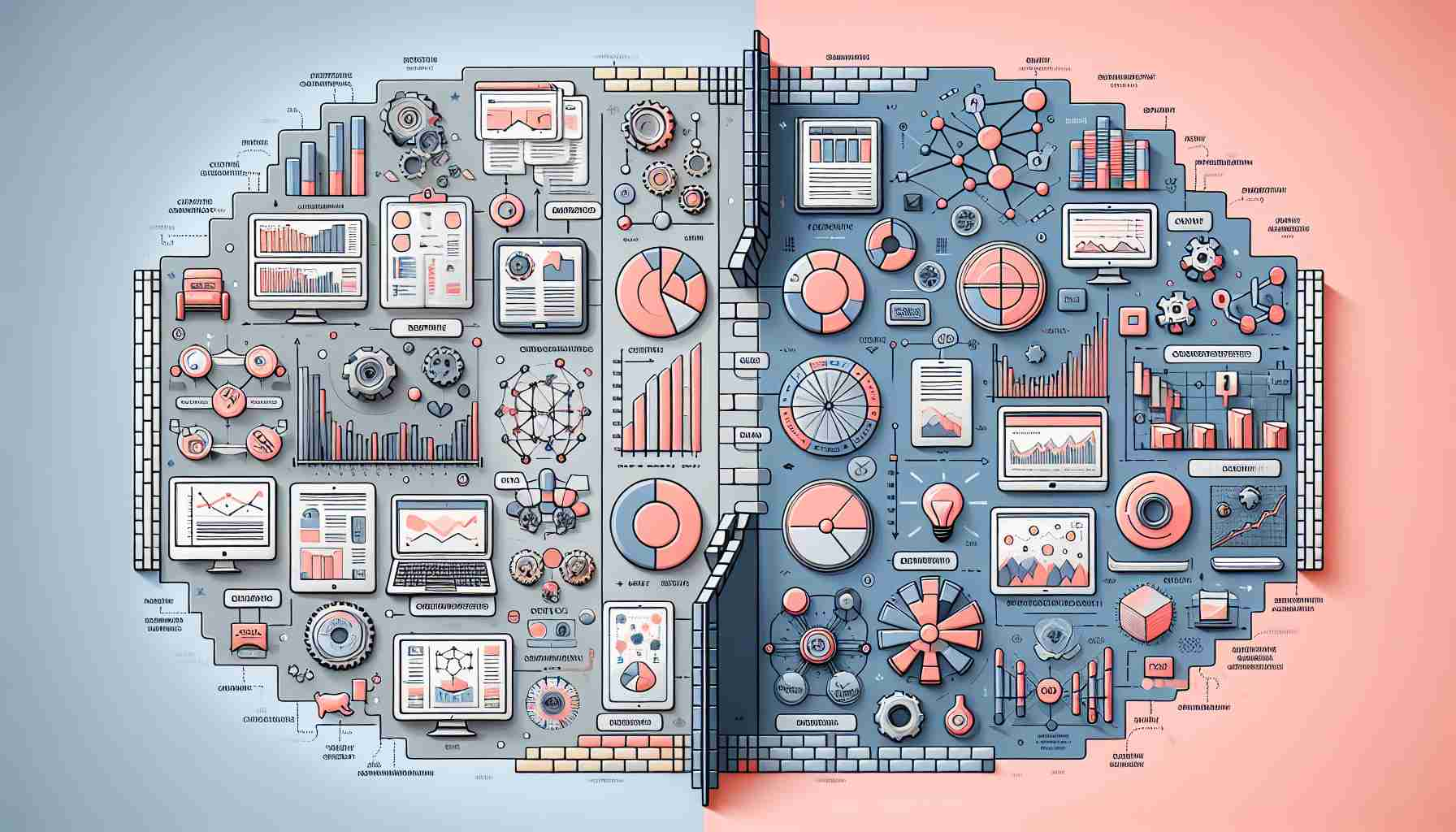Reporting vs Analytics Understanding the Distinction in Data Analysis

Reporting vs Analytics Briefly Summarized
- Reporting involves the process of organizing data into informational summaries to monitor how different areas of a business are performing.
- Analytics goes a step further by using data to generate insights, which can be used to understand and improve business performance.
- While reporting helps in keeping track of metrics and KPIs, analytics involves a deeper examination to identify trends, patterns, and causal relationships.
- Effective decision-making often requires both reporting and analytics; reporting provides the data, while analytics offers the interpretation needed to make informed decisions.
- The tools and technologies used for reporting and analytics can overlap, but their purposes within the data analysis spectrum are distinct.
In the realm of data analysis, the terms "reporting" and "analytics" are often used interchangeably, yet they represent fundamentally different concepts and serve unique purposes. Understanding the distinction between these two is crucial for businesses aiming to leverage their data effectively. This article will delve into the nuances of reporting and analytics, exploring their roles, differences, and how they complement each other in the broader context of data-driven decision-making.
Introduction to Reporting and Analytics
Reporting and analytics are two sides of the same coin in the world of data analysis. Both are essential for understanding business performance and guiding strategic decisions, but they do so in different ways.
What is Reporting?
Reporting is the process of collecting data and presenting it in a structured format. It is typically historical and provides a snapshot of various metrics and key performance indicators (KPIs) over a specific period. Reports are essential for businesses to track their operations and measure their success against predefined goals.
What is Analytics?
Analytics, on the other hand, involves examining data to uncover patterns, correlations, and trends. It is predictive and prescriptive, providing insights that help businesses understand the 'why' behind the data. Analytics enables organizations to anticipate future scenarios and make proactive decisions.
The Role of Reporting in Business
Reporting plays a critical role in the day-to-day operations of a business. It provides stakeholders with the necessary information to understand current performance levels. Reports can range from simple daily sales summaries to comprehensive financial statements.
The primary functions of reporting include:
- Monitoring Performance: Reports allow businesses to track their progress against goals and objectives.
- Compliance and Documentation: Reporting is often a regulatory requirement, providing transparency for stakeholders and governing bodies.
- Information Sharing: Reports disseminate information across different departments, ensuring all stakeholders are informed.
The Role of Analytics in Business
Analytics takes the data from reports and transforms it into actionable insights. It helps businesses to:
- Understand Customer Behavior: Analytics can reveal patterns in customer interactions, preferences, and purchasing habits.
- Optimize Operations: By analyzing workflows and processes, businesses can identify inefficiencies and areas for improvement.
- Forecast Trends: Predictive analytics can help businesses anticipate market changes and consumer needs.
Key Differences Between Reporting and Analytics
The main differences between reporting and analytics can be summarized as follows:
- Purpose: Reporting informs about what has happened, while analytics explains why it happened and predicts what might happen in the future.
- Scope: Reporting is generally static and backward-looking; analytics is dynamic and forward-looking.
- Depth: Reporting provides surface-level information; analytics delves deeper to uncover underlying trends and causes.
- Actionability: Reports are informational; analytics is about deriving insights that can lead to strategic actions.
Why Both Reporting and Analytics are Necessary
Reporting and analytics are not mutually exclusive; they complement each other. Reporting provides the foundational data that analytics builds upon to generate insights. Without accurate and timely reports, analytics would lack the raw material to function effectively. Conversely, without analytics, the data in reports might remain underutilized, failing to inform strategic decision-making.
Conclusion

In the context of data analysis, reporting and analytics serve distinct but interconnected roles. Reporting provides the necessary data and metrics that form the basis for analytics, which in turn, offers the insights and foresight needed to drive business strategy. Understanding the differences between the two is essential for any organization looking to make the most of its data and ensure that it not only knows what has happened but also understands why and what should happen next.
FAQs on Reporting vs Analytics
-
What is the main difference between reporting and analytics? Reporting is focused on summarizing past data, while analytics is about using that data to make predictions and inform decisions.
-
Can reporting exist without analytics? Yes, reporting can exist without analytics, but it would only provide a historical view without deeper insights or recommendations for action.
-
Why is analytics important if I already have reports? Analytics is important because it helps you understand the reasons behind the data in your reports and enables you to make informed decisions based on that understanding.
-
Do reporting and analytics require different tools? Some tools can handle both reporting and analytics, but specialized analytics tools are often needed for more complex data analysis.
-
How often should I look at reports and perform analytics? The frequency depends on the business needs; some reports might be daily, while analytics could be less frequent but more in-depth.
-
Can everyone in an organization use analytics? While everyone can benefit from analytics, interpreting analytical data typically requires specialized skills and knowledge.
Sources
- Business analytics
- Analytics vs. Reporting: How Are They Different and Why You ...
- Reports vs Analytics: What's the Difference? | Visier
- Analytics vs Reporting: Key Differences & Importance - QuestionPro
- Reporting vs Analytics: Main Differences And Why You Need Both
- Difference Between Reporting and Analytics - Coupler.io Blog
- Understanding the Difference Between Reporting and Analytics
- How Reporting And Analytics Differ and Why They Are Both Important
- Analytics vs. Reporting: What's the difference? - Datamine
- What Is the Difference Between Reporting and Analytics?